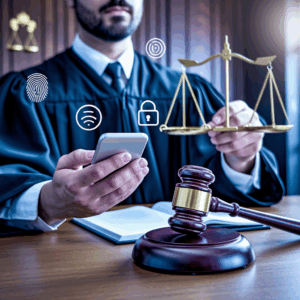In an age where smartphones store everything from our private conversations to banking details, the question of whether law enforcement can access this sensitive data without a warrant is a critical legal concern. For residents in Texas and beyond, understanding your rights under the law can make all the difference in protecting your privacy and ensuring fair treatment during police encounters.

Your Phone Is Protected Under the Fourth Amendment
The Fourth Amendment to the United States Constitution protects citizens from unreasonable searches and seizures by the government. This includes not just physical property, like your home or vehicle, but also your digital data—specifically your smartphone.
In the landmark 2014 case Riley v. California, the United States Supreme Court ruled unanimously that police must obtain a warrant before searching the contents of a cell phone seized during an arrest. This decision recognized that the vast amount of personal data stored on modern phones demands a higher standard of privacy protection than other items typically found on a person.
When Can Police Search Your Phone Without a Warrant?
Despite the strong protections established by Riley v. California, there are still some exceptions where police may lawfully search your phone without a warrant. Understanding these exceptions is key to knowing when your rights might be at risk:
- Consent: If you voluntarily allow police to search your phone, they do not need a warrant. It’s important to know that you are under no obligation to provide such consent, and doing so can expose your personal data to legal scrutiny.
- Exigent Circumstances: In rare cases, police may search your phone without a warrant if there is an immediate threat to public safety or a risk that evidence could be destroyed. However, these situations are narrowly defined and often contested in court.
- Searches at the Border: U.S. Customs and Border Protection (CBP) agents may have broader authority to search electronic devices at border crossings and airports. While still subject to legal challenges, these searches can occur without a warrant in some cases.
What About Unlocking Your Phone?
Even if law enforcement has a warrant, whether they can compel you to unlock your phone—particularly using biometrics or passcodes—is a complex and evolving legal issue.
Generally, courts have ruled that:
- Biometric Unlocking (Face ID or Fingerprint): Some courts have permitted police to compel individuals to unlock their devices using biometric methods. This is often justified under the argument that using your fingerprint or face is akin to providing a physical key.
- Passcodes: Courts are more likely to treat passcodes as “testimonial” in nature, meaning you have a Fifth Amendment right against self-incrimination and cannot be forced to provide them.
These interpretations can vary by jurisdiction, and ongoing legal battles continue to shape this area of law.
Texas Laws and Your Digital Privacy
In Texas, the laws generally follow federal guidelines when it comes to digital privacy. Texas courts have also acknowledged that individuals have a reasonable expectation of privacy in their cell phone data. This means local law enforcement must typically secure a valid search warrant based on probable cause before accessing the contents of your phone.
If you believe your phone was searched unlawfully, it’s essential to consult with a qualified criminal defense attorney immediately. Any evidence obtained during an illegal search could potentially be suppressed, meaning it cannot be used against you in court.
What to Do if Police Ask to Search Your Phone
If you are ever in a situation where a law enforcement officer asks to search your phone, here’s what you should do:
- Stay Calm: Do not argue or resist. Remain respectful and composed.
- Assert Your Rights: Clearly state, “I do not consent to a search.” You have a legal right to refuse unless the officer presents a valid search warrant.
- Do Not Voluntarily Unlock Your Phone: Unless legally compelled or under advisement from an attorney, do not provide passwords or unlock your phone.
- Contact a Criminal Defense Attorney: If your phone was searched or seized, legal guidance is crucial to protecting your rights and preparing your defense.
Why Legal Representation Matters
The digital era has introduced new layers of complexity into criminal investigations and constitutional rights. From understanding when a search is legal to navigating the technicalities of warrants and evidence suppression, experienced legal representation is more important than ever.
At J.K. Sanchez Law, we have a deep understanding of how digital privacy issues intersect with criminal defense. Whether you're facing misdemeanor charges or serious felony accusations, we are here to ensure that your rights are protected every step of the way.
Have Questions About an Illegal Search?
If your phone has been searched by law enforcement without a warrant—or if you're unsure whether your rights were violated—it’s important to take action quickly. The legal system can be overwhelming, but you don’t have to face it alone.
Contact us today to schedule a confidential consultation and learn how we can help protect your rights and your future.



